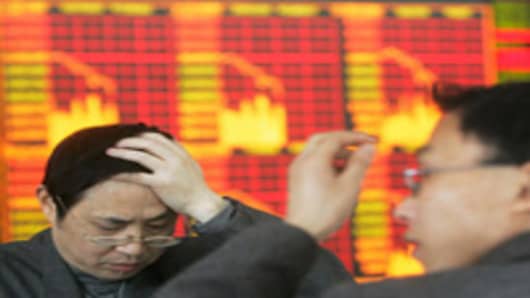Asian markets edged lower Tuesday with stocks in Seoul ending the session down 2 percent after North Korea threatened to launch more missiles while investor doubts about the world economy kept riskier assets such as the euro under pressure.
North Korea further raised tensions after its nuclear test on Monday, though analysts believe the market impact will be short-lived in a region growing accustomed to Pyongyang's actions.
The U.S. dollar edged higher against major currencies, but not too far off its recently hit lows for the year. U.S. Treasury auctions this week will test the allure of dollar assets at a time of growing worries about the country's deficits.
The greenback was routed last week on fears that the United States would lose its top AAA rating due to its widening debt levels. The dollar index, a gauge of the greenback's performance against six big currencies, edged up 0.17 percent to 80.158, though that was not too far off a five-month trough of 79.805 hit on Friday. Crude retreated to below $61 a barrel ahead of OPEC's meeting on Thursday that is expected to result in no changes to oil supply.


